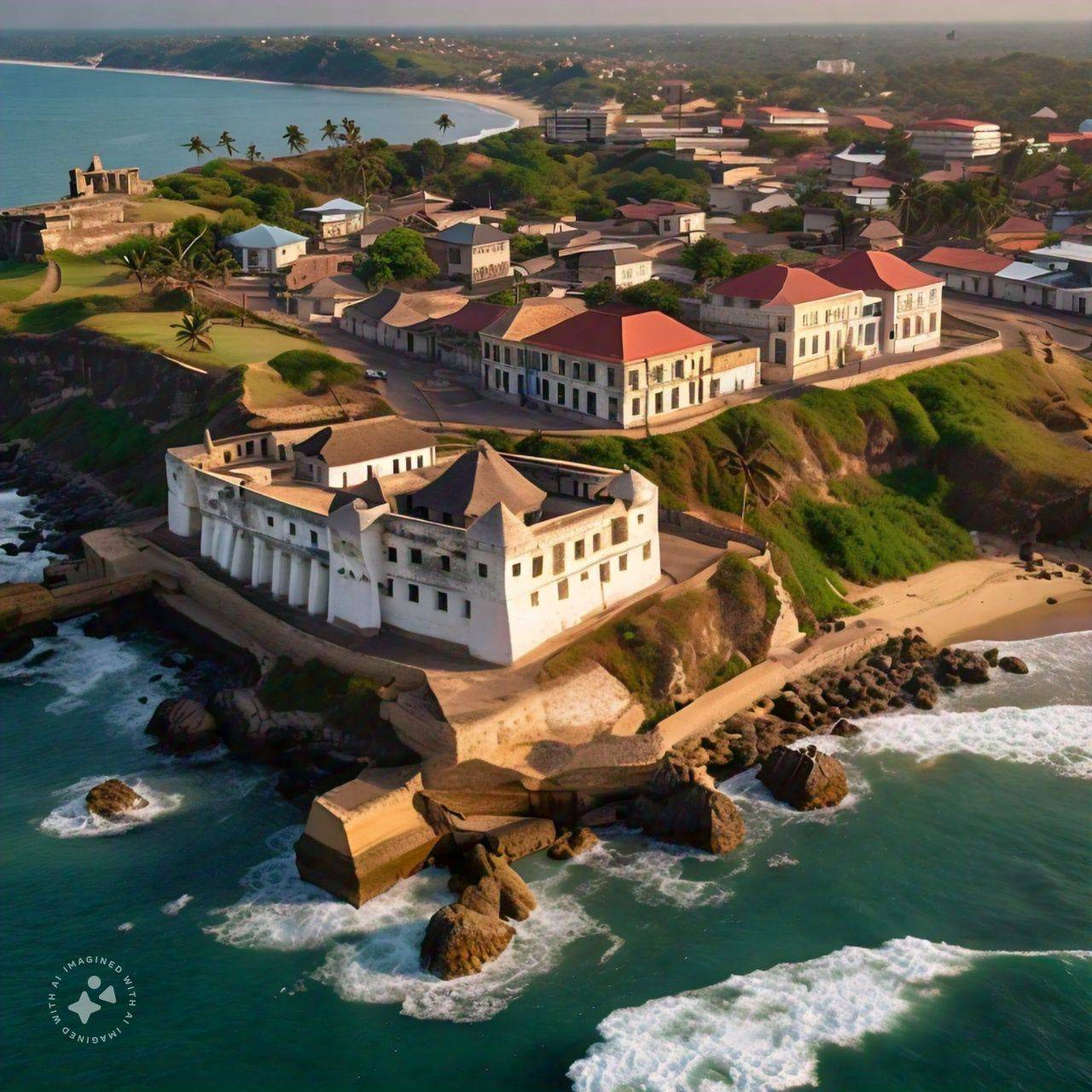We value your privacy
We use cookies to enhance your browsing experience, serve personalized ads or content, and analyze our traffic. By clicking "Accept All", you consent to our use of cookies.
Customize
Reject All
Accept All
Skip to content
African Adventures
Menu
ghana
Blog
A Brief History of: Ghana
15 Oct 2021
5 min read
In the third and final part of our blog series, we’re exploring the history of the vibrant West African nation of Ghana.
From the ancient Empire of Ghana, to the British colony of the Gold Coast, Ghana’s history is fascinating and complex. Did you know, for example, that the word ‘Ghana’ actually means ‘Warrior King’ in the Soninke language, which is still spoken by around two million people? Or that Ghana’s flag is heavily rooted in Pan-African symbolism and Ghana’s struggle for independence?
The Empire of Ghana
The Empire of Ghana formed in 300AD when different tribes of the Soninke people were united under the first king, Dinga Cisse. The Soninke people used the word ‘Ghana’, meaning ‘Warrior King’ to refer to the king, and the Empire’s enemies and allies subsequently began to refer to the region as ‘Ghana’. The Empire was actually located northwest of present-day Ghana, in what is now Mauritania, Senegal and Mali, but was gradually driven towards the coast by attacks from tribal groups in northern Africa who wanted the Empire to convert to Islam. From 1100AD the Empire weakened, until it was eventually incorporated into the Mali Empire.
An era of trade
In 1471, Portuguese traders landed in modern-day Ghana and noticed that many of the people who lived there were wearing gold jewellery. This ushered in a new era of trade in gold, ivory and timber between Ghana, the Portuguese, Dutch, British, and various neighbouring Akan states, leading to Ghana becoming rich and powerful. Today, you can still see some of the many forts and castles which the Europeans constructed along the Ghanaian coast to protect their trade interests.
In the 1500s, the focus shifted to trading in slaves, and slavery overtook gold as the main export. With the arrival of Dutch, English, Danish and Swedish settlers during the 1600s, the slave trade became highly organised. Forts such as Cape Coast Castle (which you can visit during your trip) were used to hold slaves awaiting transport to the Americas, and millions of West Africans were captured and forcibly transported across the oceans.
cape-coast-castle
The rise of the British
In the early 1800s, the British began applying pressure to try and curb the brutal slave trade. In 1807, the Slave Trade Act was signed which prohibited British subjects from trading in slaves right across the British Empire. The act did not abolish the practice of slavery, but it did encourage the British to pressure other nations to abolish their own slave trades. Slavery itself did not become illegal in Ghana until 1874, when the country was officially proclaimed a British crown colony and renamed the Gold Coast. The Ghanaian economy continued to grow through exports of gold, cocoa and coffee.
ghana
Ghana gains independence
In 1957, the Gold Coast became the first sub-Saharan colony to become an independent nation under President Kwame Nkrumah, who had led the fight for independence. Nkrumah was a Pan-African nationalist who saw Ghana’s independence as crucial for the entire continent of Africa. As the Gold Coast officially gained independence, Nkrumah declared, “Our independence is meaningless until it is linked up with the total liberation of the African continent.” Encouraged by Ghana’s example, more than 30 African countries followed suit and declared independence over the next decade.
Following independence, the country was renamed Ghana, as it was believed that many of the new nation’s inhabitants were descended from the Soninke people who lived in the ancient Empire of Ghana. Ghana’s flag incorporates the Pan-African colours of red, yellow, green and black to represent political unity between all those who live in Africa, and features the black star as a symbol of Ghana’s new freedom.
The currency was also changed from the British West African Pound to Ghanaian Cedis. Fun fact: The word cedi is the Akan word for cowry shell, and these shells were used as currency until 1901. Cowry shells aren’t native to Ghana’s waters but were introduced as a form of currency in West Africa by traders from Arabia in the 1300s!
Ghanaian Cedis
A democratic state
After independence, Ghana’s governments were plagued by corruption, coups and military rule. For many years, Ghana was effectively a one-party state, until 1981 when Ghana’s new leader, Jerry Rawlings, vowed to put an end to this once and for all. In 1992 a new constitution was adopted which allowed for the formation of multiple political parties and a democratic system of government. Today, Ghana’s president is Nana Akufo-Addo, and the country is now seen as a shining example of economic recovery and political reform. In fact, Ghana was recently ranked the second most peaceful country in Africa after Mauritius!
You can find out more about this fascinating destination here.
15 Oct 2021
5 min read
Recent blog posts
Imhotep STEM ambassadors return to Ghana
Imhotep Charter High School students returned to the Volta Region in May to continue their African-centred STEM programme for global change at our partner schools…
19 Jun 2024
4 min read
| |
spotlight-on-imani
Spotlight on: Imani
In May, Imani, our Senior Trip Host for Zanzibar, visited the UK office during his travels to the UK and Europe. It was lovely to…
17 Jun 2024
4 min read
Derby County Community Trust’s 11th trip to Kenya
Derby County Community Trust (DCCT) returned to Kenya in May for their 11th trip, to continue the development work at five of our partner schools…
13 Jun 2024
7 min read
Are you ready for an African Adventure?
© African Adventures Ltd. 2024
Website by Rareloop
Navi Yonge ClEastlstleitleiy Policy




No comments yet
Be the first to share your thoughts!